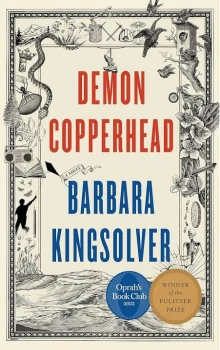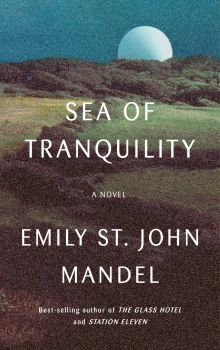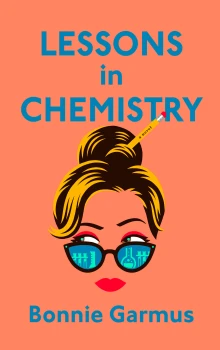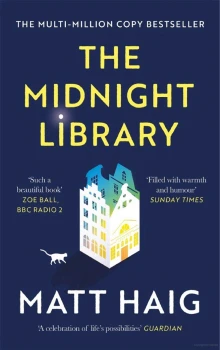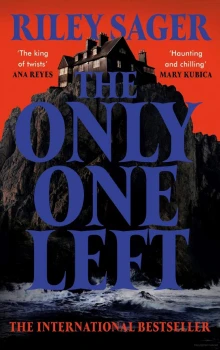18
Hai found an extra pepper grinder at HomeMarket earlier that morning and locked himself in the bathroom, grinding his pills into two heaps of powder in the contact case. Now he’s sitting in the waiting room again, a line of Dilaudid dissolving fast in his bloodstream. He was at that point, early in the high, when his hands buzzed with a radiant warmth, as if his fingers were made of light.
This time the psychiatrist’s office was more barren, the walls somehow further away. He could hardly look around when the door flung open and a man’s voice called Sony’s last name, to which his cousin bolted upright.
“You coming?” Sony asked, his face pale and stricken.
“I guess?” Hai followed him through the door, into a larger room with lights bright enough to conduct autopsies under. A woman’s face floated into view, a pulled-back ponytail revealing a spray of pimples across her shiny forehead. It wasn’t until she jabbed Hai’s chest with her finger that he noticed her uniform, the badge gold and gilded with County Corrections: Est. 1963. Sony flinched when her cuffs rattled against the metal hooks on her belt loop.
“You okay there, friend? You’re shaking and it’s making me nervous.” She leaned to check Sony’s face, his eyes shut. “I have to pat you down—that gonna be a good idea, or should I get some help?” She said this looking at Hai.
“We’re okay, ma’am. My cousin, he’s…he’s special-needs, that’s all. He gets nervous.”
“George, can you do him?” She nodded at the male guard.
Hai and Sony stood, hands raised, still in their HomeMarket aprons, the black fabric splotched with sweet potato and dusted with flour.
“What’s this?” Pinched between the woman’s fingers was a pink origami penguin.
“It’s for my mom,” Sony said, eyes still shut.
The guard behind Hai gave his shoulder a light tap and cleared his throat to indicate he was done.
“For your mom.” The penguin lay on its side in her palm. “Well…go on and take it to her, then. She’s in eighteen.”
She stepped out the way and the boys headed down the row of booths, their cell phones left behind at the metal detector. The booths were separated by metal privacy sheets, and they didn’t see Aunt Kim until they turned into her cubicle and her face suddenly appeared a foot away, gaunt and sullen. Aunt Kim seemed surprised to see Hai. She covered her mouth and looked away, then back at him. “You look so much older, Hai. God, it’s been two years already, huh. Wh-what are you doing here?”
The boys sat on the plastic bench bolted to the floor. Aunt Kim instinctively reached for her son’s hands but banged her knuckles on the telecom grid. Hai wanted to evaporate, to let Sony do this alone—what did this have to do with him anyway? He had only agreed to come because he didn’t want Sony taking the one-hour bus ride after work alone. He could’ve stayed in the waiting room and at least enjoyed the high coursing now through his veins.
“How are you, Aunt Kim?” Hai said, his Vietnamese somehow strange to him in the concrete walls. “We wanted to come because it’s Tết.”
“Oh heavens. It is, isn’t it? How did I forget? How did I not—”
“It’s just another new year,” Hai said. “The Tiger’s overrated anyway. How long have you been in here?”
There was another guard standing by the door behind her. Only one other booth was active, so far down the line they heard only the stifled chatter of a man and woman, most likely lovers.
“It’ll be a year in June. Con trai tôi okay không? Hãy cho Dì biết sự thật nghe.” She looked only at Hai.
“Nó vẫn tô´t chu. Dì đừng lo. Con coi chúng em mà.”
“Do they give you noodles in there, Ma?” Sony asked. He was running a finger up and down the scar on his head, soothing himself.
Aunt Kim forced a smile, pleased by this question from a boy who rarely asked how anyone felt. They fumbled with small talk, their voices dropping each time the keys on the guard clinked when he shifted his weight. Aunt Kim told them about her days there. How the prison reminded her of an indoor courtyard, like the one from her childhood apartments in Vietnam. How the women milled about on little islands of alliances and friendships, playing cards, braiding each other’s hair, watching The Ellen DeGeneres Show, some just sitting for hours slouched against a wall, waiting—her eyes fixed on the middle distance as she spoke.
Hai noticed her features, crushed at their edges, not sharp like her usual self, her hair frazzled and streaked with hundreds of white threads that fell wildly around her shoulders. Gone was the steely, biting wit and angular countenance he once knew. She had always been the rebel of the two sisters.
“At first everyone thought I was Native American,” she chuckled. “I guess I’m the first Vietnamese they’ve seen in here.”
“What did she say?” Sony asked in English. He had a knee pressed to his chest and was picking at a hole in his apron.
“Your mom gets confused for Native American in here,” Hai told him, and Sony nodded without looking at her.
“How’s your mom?” Aunt Kim asked, sitting up. “She doesn’t know I’m in here, does she?”
Sony and Hai looked at each other and shook their heads.
“Good. Last thing I need is to have her realize the bad daughter’s the one in jail. She still have that key chain I got her? The Louis Vuitton one?”
On Ma’s key chain was a pendant the size of a matchbook meant to resemble a miniature Louis Vuitton clutch. It swung on the knob each time she opened the door and came home after work. It even had a latch you opened, though you couldn’t put anything in it, pointless as something in a dollhouse.
“I bought it for her birthday before I left for Florida, before our big fight.” Aunt Kim shook her head, smiling. “She always wanted a Louis Vuitton bag and I meant to buy her the real thing. I walked into the LV store in the mall, after saving for months, took one look at the price tag, and knew I could never get it. I was so embarrassed, I walked around picking up the smallest things I saw, until the items got smaller and smaller and I got near the register. By then all the staff seemed to know I didn’t belong there.” She gave the boys a shriveled glance. “Finally picked up the key chain from a pile on the checkout counter. Do you know how much a key chain costs at Louis Vuitton? Two hundred and fifty dollars. Probably the most expensive key chain in the whole world.” She licked her chapped lips. “I’m stupid. But at least I can say that. That I got your mom the most expensive key chain money could buy. And she loved it. The whole week she kept saying, ‘You got me real Louis Vuitton!’ Well, what can I say? I did.”
“It’s still on her chain,” Hai assured her. “Even now.”
Aunt Kim nodded. “Hey, sweetie,” she said to Sony, her voice shifting, “you wanna go get your cousin a soda from the machine over there? He came all this way—”
Hai reached into his pocket for cash, but Sony was already on his feet, glad, it seemed, to have a task other than staring at the floor. “Ma’am, yes, ma’am,” he said with a military salute, and dashed off.
When Sony was out of earshot, Aunt Kim dipped her head toward the intercom and rubbed her temples. “Listen.” Her eyes were squeezed tight. “I need to clear something with you.”
“Auntie,” Hai leaned forward, his breath fogging the glass. “I know you and Mom aren’t talking but I promise you, she’s not mad. She’s just—I dunno—lost.”
“Her? Lost? Look at me. I’m in a boat at sea with no oars. That’s what it’s like not being near him. I want to know how he’s doing but I’m too scared to ask. Each time he comes we just talk about the war stuff he likes or he just goes on and on about this chicken job.” She leaned back and shook her head. “I just…Why can’t he be a math genius or something, you know? Isn’t that what the illness gives other kids? Makes them some kind of prodigy? Something useful?”
“It’s not an illness. And he knows more about history than anyone I know. He’s smart. Way smarter than me and I’m not just saying that.”
“I know, but…Oh, fuck me.” She covered her face with both hands. “What have I done? I’m gonna pay for being such a shitty mom. He just seems like he’s full of secrets. How did I give birth to a stranger? All these years and I still don’t know that boy.”
“Stop.”
“Listen, though. I just want to tell you this. And please, please, keep it between us.” She glanced down the row of empty booths, blinking through wet eyes. “Sony’s dad, Minh. Well…he was an odd man. Sony worshipped him, though—and I should have told you this a long time ago.” She lowered her voice to a near whisper. “But Sony’s father, your uncle Minh, is dead.”
The plastic bench creaked as Hai leaned back. “Like dead dead?”
“Almost four years now.”
“Are you kidding me? Uncle Minh?” Hai whispered.
Sony’s dad was found in a forest outside of Brattleboro one February morning, Aunt Kim said. His car was parked a little ways into the trees, after a trailhead. The car was charred to a crisp, having burned for hours during the night with nobody knowing. “They said it was a gas leak in his tank that lit up when he was smoking. He had a habit of stopping by the side of the road and smoking and sulking, even when he was with me. But I—I don’t know…” She shook her head, her face doubtful and adrift. “He’d been—”
“And you never told my mother?”
“She doesn’t talk to me. And I’m in fucking prison.”
“So Sony has no clue? None?”
Her silence said Yes.
“What am I supposed to do with this?”
Sony’s footsteps approached, the twist of the soda bottle opening, the Sprite set down on the counter. For a moment the fizz in the bottle was the only sound, the couple down the aisle long finished with each other.
Aunt Kim smiled with only her mouth. “Go on, drink.” She nodded at Sony. “I made you get it cause I knew you were thirsty.”
This made Sony grin. He sat down and drank with both hands. “You’re always thinking, Mom,” he said in English. Then, “Hey, you think I can go see Dad next month? I have three vacation days now I can use. He wrote about his new job at the post office last month, and I wanna see him in uniform. The Postal Service changed it to white shirts last year.”
Aunt Kim wiped her nose with her sleeve. “I dunno. We should let him work. Remember, he also has that wife. And her kids.”
“Maria owns the biggest Mexican restaurant in Vermont,” Sony went on. “He told me all about that too.”
“Can you just hold off a bit?” She said it with a bite that jingled the guard’s keys. “Can you at least wait till your mother gets out of here first before you see that man, who’s free and living his dream life out there?”
The guard glanced at his watch and announced that they had three minutes left.
Sony’s eyes were down. “I’m not gonna hate him just cause you do.”
“I didn’t get to be young, you hear me? You have your schooling. Don’t you want to get some kind of degree? Get a piece of paper and be something for talking about all that Civil War nonsense all the time? I…” Aunt Kim glanced away and took a deep breath. “I never got to study hard and fail a test, then go to the library with my friends to study again. To improve. I don’t have any second chances. Just you. That’s it. You’re my second chance.” She stretched her arms, the tan oversize jumpsuit making her seem like a very old child. “I had you at seventeen. And right away I went to work at the Colt gun factory along with your father.” Sony could only understand a portion of the Vietnamese, but he didn’t need to. He could see it. He had instinctively shielded himself with a cupped hand to avoid meeting her eyes.
She let her arms drop. Hai grabbed the Sprite and drank as the guard cleared his throat.
“Your father was not a good man.” She lifted her chin. “But he loved you. I won’t deny that.”
“I’m training to be a guard at the Tomb of the Unknown Soldier. It’s even harder to get into than the Marines, and I’ll—”
“Time!” the guard said. “Wrap it up, nine-two-four.”
It was only then that Hai saw the number stitched on his aunt’s chest.
“I made this for you.” Sony dug into his back pocket and showed his mother the pink penguin in his palm. She watched the paper bird lying on its side, her eyes soft and warped. “It’s a pink penguin. I’ll pass it to the guard and they’ll put it through the X-ray and you can have it tomorrow.”
She nodded. “It’s beautiful, baby. Hey, hey, look at me now. You’re stronger than you think. You hear me?”
Aunt Kim stood just as the guard opened the steel door leading to general population. “If your mom asks, tell her I’m okay,” she said to Hai over her shoulder. “Tell her I’m still in Florida and I got a big car and everything, okay? A Honda. You tell her I have a Honda, and you—” But the door shut behind her and all of a sudden the only sound in the room was the Sprite fizzing between them.
The cousins staggered into the frigid night as the fourteen-gauge metal doors closed behind their backs. They stood in the immense quiet engulfing them, the sky above smeared with stardust. The prison was surrounded for miles by a pristine winter wasteland, full of pine forests and marshes and protected preserves—an earthy scent came off the nearby trees and filled the air. Everything the prison produced and used was now sealed away, not even the scent of Pine-Sol and Clorox from the scrubbed halls had made it past the gates.
“There’s more stars than I remember,” Sony said.
Before Hai could answer he was already crossing the lawn toward the parking lot. The wind was cutting as they huddled together, following the barbed-wire fence toward the bus stop, their aprons flapping like friars’ robes in a medieval fable.
“What time does it come?” Hai asked as they sat shivering in the glass vestibule.
“9:02.” Sony flipped open his phone. “So a half hour.”
Hai took out his copy of The Brothers Karamazov and thumbed through it, the book now half its original thickness. He had gotten to the part where they were carrying the boy Ilyusha’s adolescent coffin through the run-down church to be buried, and stopped weeks ago, unable to continue. “You know,” said Hai, “Dostoyevsky named the protagonist, Alyosha, after his own son, who died of epilepsy when he was only three. He made him the goodest person in the book and…” Hai shook his head, not knowing where he was going with this.
“Hey. When you become a writer, would you—”
“I’m not a writer.” Hai shoved the book in his jacket. “It’s just a thing I used to say. I’m fucking around, okay?”
“Well, you can learn, can’t you? That’s why you went to college, to learn things fast.”
“Sony.” Hai stared hard at the woods across the frost-covered road, the spaces between the birch trunks so dark they seemed filled in with Sharpie. “Look, touch me. Go ahead. Grab on.” He held out his arm and Sony squeezed it, cautious. “Harder. See? That’s the only real thing about me, that I’m sitting here next to you at this bus stop. That’s it. Everything else, what I do, what I’ve done, the goals and promises, they’re all, like, ghosts. For most people, their ghost is inside them, waiting to float out when they die. But my ghost is in pieces.” He pointed with his chin at the scattered trees. “It’s all over the place, caught in all the spots where I snagged myself. You get it?” Hai paused. He had actually never verbalized this before, and the sudden clarity made him queasy. It lay before him like a perfectly dug hole, the edges immaculate and sharp. “I don’t have nothing left. Don’t you get it by now? Not even something the size of your little paper penguins. So quit going on with this stupid college shit.”
Hai instantly regretted what he said. “Hey, I don’t mean to creep you out. I’m just tired. This is a weird place.” He bent over and hid his face in his hands.
“But I don’t get it,” Sony pushed on. “Isn’t it a dream of yours?”
Hai wanted to say more, to tell him everything, but he didn’t have the strength. “Your mom is gonna be fine. And that’s all that matters.”
Sony took a swig from the Sprite. “But you can’t control your mind. Even if you think you should, you can’t.” He was whispering now—and for some reason Hai was afraid to see what his face looked like when he was saying this, so he kept his eyes down. “My mind only pulls in certain things,” Sony went on. “Sometimes I want it to pull in something else. Like my counselor dates, or the names of people I keep forgetting, or how somebody is feeling about CNN or the Patriots, or Wayne’s windowsill garden he loves so much…my mom. Your mom. But those things don’t come over and choose me. They leave me out of it.” He zipped his coat up to his chin. “Sometimes I want to think about being good. But it doesn’t choose me. It just doesn’t. I’m no good at goodness.”
“That can change,” said Hai. “It’s called growth, learning. People can—”
“But truths don’t ever change. Only lies do.”
“Did some dumbass general say that?”
“No, BJ did.”
Hai accepted so much in Sony, he realized, that he wouldn’t in anyone else. The boy could say anything and he’d take it seriously. Sony could strangle somebody with his bare hands and Hai would sit down beside him at a bus stop and be convinced there was no other way, shovel in hand.
Sony was trying to figure something out. “Would you ever write about me, though? Like in a story or something?”
“I don’t know.”
“Well, if you do,” he laughed nervously, “don’t put my mole in it, okay?”
“Okay.” Hai nodded, but his mind was somewhere else. “Hey. Do you think a life you can’t remember is still a good life?” The question sounded almost silly aloud. “I mean, like—”
“Yes,” said Sony.
“Why’s that?”
“Because someone else will remember it.”
With that Sony swiped his hand at the air in front of them—so fast that Hai jerked back. “What was that?”
“A fly.” He brought his fist to Hai’s face, then opened his hand. “An imaginary one.”
“Did you get him?”
“No.” Sony shook his head, looking around the immense night. “He got away.”
It was almost ten thirty when the bus dropped the boys back in East Gladness. After he rode Sony home on the bike pegs, exhaustion seeping in his marrow, Hai crossed the park through the baseball diamond, the mud so thick and deep he had to walk his bike the rest of the way. Only when the dead end appeared, and with it the smog-grey house, did he remember why he came.
He dropped the bike and sat on the curb across the street. The house was still, the lace curtains diffusing the lights with its dreamy gauze. He had promised Grazina he’d go see his mother that night to wish her a happy Lunar New Year. “Go, go,” Grazina had said. “Go hug your mother and say thank you. Believe me, just say thank you. You don’t have to explain anything.”
He was to fill her in on his big life out in Boston. He had even invented an anecdote about dissecting the liver of a hog using what he saw at the butchery to render it with verisimilitude, down to its twitching hooves. But now, as he stood shivering across the street from the house they shared, the will to face his mother suddenly drained from him. Devoid of conviction needed to give the performance its veracity, he decided, at the last minute, to call her instead—and so he dialed the number he knew by heart, the big rigs blaring behind the highway fence as the phone rang.
“Ma?”
“Oh—it’s you!” she said, surprised. A faint shadow in the upstairs bedroom filled the frame. She must have been sleeping and was now sitting up in bed. “It’s so late. Are you up studying?”
“Well, I just…I just wanted to say happy Tết. I figured since you’re alone and all, and I—” He caught a voice in the background, a woman’s, pitched by a question, and he realized his mother had suppressed a laugh when she picked up.
“You there, Hai? I think the signal’s bad—there’s no tower by this stupid highway.”
“I’m here.” He swallowed, scanning the window. “And yeah, I’m in the medical school library. It’s open all night. Hey, I’m sorry I didn’t call earlier. I just…” He sat down on a soggy couch on the curb, yellow foam bulging from its sides. “I just got caught up.”
“Oh, it’s nothing.”
“I just wanted to be the first to wish you happy New Year. So happy New Year, Ma.”
“You too, son. Did you cut some of your hair today?”
“Fuck,” he said in English.
“Don’t say that in a library! What kind of doctor swears like that?”
“I’ll cut some tomorrow. I promise.”
“I cut a piece this morning, the size of a thumb. We have to let go of the bad energies from last year, you know. You have to take that weight off. And there was a lot of weight.”
He nodded at her shadow in the window.
“Hey, Hai?” Her voice was breathy. “I wanted to tell you this while you were here, but I just—I dunno—there was a lot going on and—”
“What is it?”
“I’m just really proud of you for taking this chance. At everything. I mean, not just taking it. But you made your own opportunity. You went out there and strung it together. You know, all my life, after you were born and your father left us, I kept thinking something else would come, and it just didn’t. I always thought it would stop for me like some boat while I waited on the shore with my son and my mother, our bags all packed and ready. But it never came for me and…”
“Mom don’t.”
“No, let me finish. I never tell you anything and I need to say this. The truth is, it never came for me, okay? Sometimes you have to be lucky but also very brave. And I wasn’t either. But you are. You made your own way with just your mind. No one helped you—I know that, okay? Just know that your mother knows that.”
There was a long pause as they let the words hang in the street between them.
“I’m trying,” was all he could manage, the cold damp of the couch seeping through his pants. He heard the woman talking in the back, and in the window a fainter shadow approached his mother’s silhouette. “Hey, is someone with you? I thought I heard—”
“Oh.” She forced a chuckle. “It’s just Ms. Do. You know, from the salon. She also lives alone, so we decided to keep each other company today. It’s less grim this way.” Ms. Do’s shadow sat down next to his mother’s.
“Good luck in your studies, Hai!” Ms. Do called out. “We’re all very proud of you.”
“Please tell her thank you,” he said.
Through the downstairs window, he spotted the night-light his mother kept on the kitchen counter. Underneath it, in a ceramic cookie jar the shape of a monkey, was where she kept her tips, folded into hundreds of cigarette-like rolls and packed stiff in the jar. How many times had he woken in the immense and throbbing silence of predawn, crept into the kitchen to lift the monkey’s head, and taken out a few rolls before heading toward the Candy Man?
“Oh, actually, I wanted to ask you this thing,” his mother said. “What’s the difference between Suz-anne and Susan anyway?”
His mother, like her coworkers, used an American name at work. It was believed that the more “familiar” the name, the more tips you’d get. For years, she went by Julie, then Stacey, but after a while felt the long e sound at their ends sounded too childish, so lately went by Susan.
“I dunno. Which one you like better? But yeah, they’re two different names. I think Suzanne is a bit older sounding, like from another era.”
She thought about it. “That’s what Ms. Do said too. She goes by Lucy. But I like Suzanne. It goes up at the end—don’t you hear it?”
“It definitely goes up.”
“I knew you’d get me.” She laughed brokenly.
“I love you,” he said in English, his voice somehow strange to him, the Dilaudid fading fast.
“Love you too. Well, I better go, okay? We’ve been drinking Ms. Do’s Hennessy and my head’s spinning.” The edges of their shadows touched as they laughed.
“Okay. Happy New Year, Ma.”
“Happy New Year, my son.”
Before he could see their figures move, the bike spokes whirred beneath him and he was already halfway down the block, the night breeze cool and soft on his brow. He rode for a while through the dew-slick streets, the February trees like wooden sculptures carved from another time. Soon the storefronts dropped off and he entered the sunken quiet of suburban roads—the lights still on in one, maybe two rooms in each house. There’s a way an old Connecticut town feels when you pass through it at night. Hollowed out, blasted yet stilled into a potent aftermath, all of it touched by an inexplicable beauty, like the outside has suddenly become one huge living room. And you feel you can sit down underneath the sincere light of a streetlamp and no one would bother you, no one would tell you to leave, because they know you’re staying for a reason. That you’re bound by your debts, by blood or sweat and the cars sprayed silver with hoarfrost along streets named after white millionaires no one remembers. How boring, he thought, to be yet another boy wanting to rid himself of the hometown dust clinging to his clothes, setting out like a spark flung from his mother’s cigarette. He floated through the empty streets, eyes watering from the icy wind. He passed houses filled with warm light and imagined the people inside, his head growing blurry with the thought of them huddled in their tiny parlors full of furniture and voices breaking through the raiment light of TV commercials, the news, its endless reel of abjection, their bodies kept, for now, from the intolerance of daylight and its procession of work and misgivings. Shot through him were fantasies of being amongst them all. He imagined all the boys he wanted to know lying sleepless in their cramped and cluttered rooms, the curling posters and chipped trophies, the endless cords to defunct video game consoles, all of it once the feeble altar of teenage triumphs, now the detritus of adolescence. He wavered through the blocks, searching each window for a face and, finding none, lent his face to the overcast sky, a bowl so emptied it was hard to imagine it held anything at all, let alone entire flocks of geese. By the time he crossed King Philip’s Bridge, he was delirious with want for everything unreachable. Entire lifetimes seemed within his grasp, and producible within this one, then vaporized with his breath fogging over his head. The bridge lights smeared everywhere as he called out, in a voice so shrill it jolted him out of his pilled stupor. “Bà ngoại! Uncle Minh! Where are you?” he shouted in Vietnamese as he pedaled. “Uncle Minh, Bà ngoại! Are you there?” He wanted to plunge his bike forward and ride all night toward the horizon, looking for them. If he pedaled hard enough, fast enough, he thought, he could tear through the film of time that held him in place, reaching lateral escape velocity, and find them both sitting alone at the McDonald’s parking lot in Virginia, a half-eaten chicken tender in Bà ngoại’s hand, grinning at him. “Grandma!” he cried in English, as he dropped the bike in front of 16 Hubbard and staggered toward the door. “Grandma, come back!” It wasn’t until the sky flipped in front of him that he realized he had slipped on a patch of black ice and the streetlamp, the last one left on the block, was blazing down from above.
He lay there awhile listening to the river, its low rush along the banks, the periodic gurgle as the waves swirled around an inlet. It must’ve sounded like this for thousands of years, the only constant thing, no matter how much people polluted it. No matter how much waste was dumped into its depths from the chemical factories in Springfield or Manchester, how many bodies it swallowed and spat out, clean as teeth, this sound of its flow toward the sea remained unchanged. He heard the screen door unlatch, swing open, then footsteps crunching over.
“Who are you? Which camp you come from?” Grazina’s floral nightgown splayed across the snow as she knelt and put her hand on his forehead.
“My name’s Hai Sergeant Pepper,” he said, looking up at the streetlamp, “and I’m taking us to America.”
“Are you wounded?” She felt around his chest for holes. “Oh Mother Mary, he’s been shot.”
“I’m okay.” The pills were making him feel like a boatless anchor at the bottom of the sea. “I just…I just can’t quit it, Grazina. I don’t know how to quit it, oh man.” He broke into a silent sob and rolled over, tucking his knees to his belly. “I can’t quit.”
“Of course you can’t quit! You’re the American army. There are no quitters here, yes?”
“I can’t stop—oh, I’m so fucked. We’re so fucked.”
“Okay, okay, wait here. I know what will help.” She shuffled back to the house and returned moments later holding something with both hands. She slipped it through the collar of his zipped jacket, and soon the handheld radio crackled to life as a swell of orchestral music—cellos, strings, flutes, and clarinets—swept out from his chest.
He listened to the score as it merged with the river, his breath tightening across his ribs.
“There, there. Easy now, soldier.” She dried his eyes with the hem of her nightgown, the tulips darkening. “It’s just a flesh wound in your eyes. But your blood is clear, see? That means you have a clear conscience. Now this, this is Lithuanian National Symphony Orchestra. They air it all the way from Vilnius, bless their hearts. The music will make you feel better, trust me.” She placed her ear against his heart and listened, nodding. “Don’t worry, Pepper. God won’t let good people die. Not tonight.”
He dug in his jacket and fished out his pocketknife. “Listen, I need your help with something, okay?”
“You know I can do anything, Sergeant.”
“I need you to take this,” he handed her the knife, “and do surgery on my hair. Here, just this part. My mother said it would take all the weight off.”
“I’m no nurse but let me see.” She drew closer, ran her fingers through his bangs, flipped open the blade, and cut. The strands of black hair vanished in the wind as the band played on.


